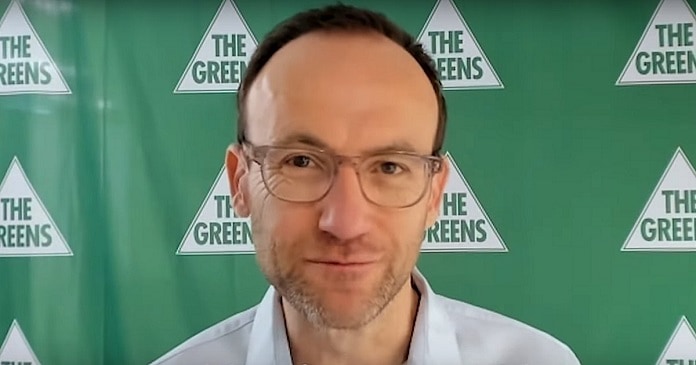There is a chance that both Scott Morrison and Anthony Albanese will fall short of a majority after the election. Independent candidates and The Greens are pushing to hold the balance of power, where their support is needed to form government, saying that this will allow them to extract substantial reforms. But it’s no way to win change.
It is welcome to see the Liberals fracture, under pressure from voters in inner city seats over issues like climate change. In a number of these seats, independent candidates stand a chance of winning.
However, these independents are running in some of the wealthiest seats in the country. They share the politics of “moderate” Liberals and are backed by wealthy business figures.
They can’t be relied on to support workers’ rights. Zali Steggall, an independent who stole the Liberal seat of Warringah last election on a climate platform, was prepared to back legislation that would have allowed the CFMEU’s deregistration, and opposed Labor’s taxes on rich investors.
The Greens are also banking on a hung parliament where they share the balance of power. They argue that this will “keep Labor on track” and force them to adopt more progressive policies.
But the balance of power has never delivered real change, because it works both ways. While The Greens may be able to broker slight improvements to Labor policies, Labor can put a harsh leash on how far this can go.
The Greens could block regressive legislation but their power to force Labor to support positive changes would be limited. Labor could simply demand that The Greens take it or leave it, or else risk the Liberals taking power.
The Liberals could also vote with Labor to pass legislation—which happens more often than many realise.
This was made clear in 2010 when Labor was in minority government under Julia Gillard.
Labor needed the support of independents in the lower house and The Greens in the Senate. But this did not push Labor in any way to the left. Gillard reintroduced offshore detention for refugees, cut billions from universities, and cut single parents’ payments.
The Greens negotiated the carbon tax with a Labor government that was committed to pro-business policies.
What resulted was a pathetic 5 per cent reduction target by 2020 and a tax which passed costs onto ordinary people rather than the massive polluters, handing the Liberals a free kick which put Tony Abbott into power.
The Liberals are trying to paint Labor as puppets of The Greens, claiming that a Labor government would mean radical reforms.
Instead Labor are backing the bulk of the Liberals’ policies, arguing they are a “safe change” in government. Albanese has loudly ruled out “negotiating or doing deals with The Greens after the election”. Labor is unlikely to choose to work with The Greens after this.
They are much more likely to pick the most moderate independents to work with, from the six already in parliament or any others newly elected.
Fighting on the streets
The Greens’ strategy of winning the balance of power is a dead end. Real change can’t come from within parliament but only through social movements and class struggle.
It is not action in parliament that has kept climate change on the political agenda but campaigning and protest outside it, through the bushfires, floods and climate failure of the Morrison government.
The Climate Strikes led by school students around the country have had far more of an impact than anything in parliament. In 2019, hundreds of thousands in Australia marched under the slogan “system change, not climate change”.
These protests put real climate action to the top of the agenda and united students and unionists around the need for a just transition.
Morrison’s lukewarm support for net zero by 2050 is a freefall into the apocalypse. Nor will Labor’s target to reduce emissions by 43 per cent by 2030 be enough.
Both parties are solidly behind the immense power of the fossil fuel giants, who make tens of billions of dollars every year from destroying the planet.
Small concessions through using the balance of power are not going to deliver the kind of action we need. If we want to stop climate catastrophe, we need radical change through 100 per cent public renewables by 2030, an immediate just transition, and no new coal or gas projects.
Winning this will require a much more powerful climate movement outside parliament.
Similarly, it is grassroots campaigning for refugee rights that has forced changes such as children off Nauru and the release of almost all the Medevac refugees from detention.
The teachers and nurses’ strikes in NSW hold the possibility of forcing an end to understaffing and improving public services.
It is only through this kind of action that we can force a better world.
By Maeve Larkins






